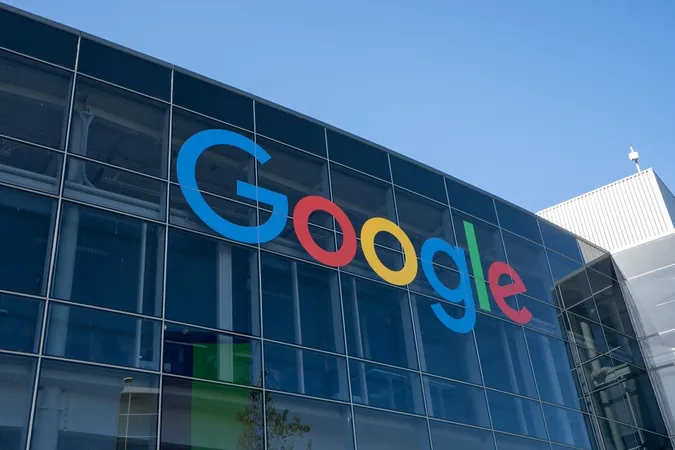
Google's AI Feature Sparks Outrage Among U.S. News Publishers: Is Journalism at Risk?
2025-05-22
Author: Arjun
A Major Concern for U.S. Publishers
In a shocking revelation, the News/Media Alliance, representing leading news publishers across the United States, has raised alarm bells over Google’s newly expanded AI Mode. This controversial feature is reportedly slashing traffic and revenue for news outlets, sparking a heated debate about the future of digital journalism.
Voices of Discontent
Danielle Coffey, CEO of the News/Media Alliance, didn't hold back in her criticism, stating, “The links were the last lifeline for publishers, driving crucial traffic and revenue. Now, it feels as if Google is taking our content by force without giving anything in return.” She is demanding urgent regulatory intervention to protect publishers.
The Crumbling Deal: A Call to Action for Regulators
This development marks a seismic shift in the long-standing agreement that allowed Google to index publisher content in exchange for traffic—a symbiotic relationship that has historically fueled digital publishing. Recent stats reveal that traffic to the top 500 publishers has plummeted by a staggering 27% year-on-year, resulting in an alarming average loss of 64 million visits monthly.
The Rise of Zero-Click Searches: A Game-Changer?
With the surge of 'zero-click searches,' where users are provided with answers directly by AI without needing to visit publisher websites, many notable news organizations are witnessing search referrals drop by over 20%. This paradigm shift threatens the very foundation of the digital publishing economy, potentially costing the industry around $2 billion annually.
Google's Relentless Strategy: 'Take It or Leave It'
Google’s approach to content rights has been met with criticisms before. Their handling of consent during GDPR in 2018 showed a similar trend, pushing publishers to accept terms without transparency. Even after changing some policies related to copyright disputes in Germany, their latest stance on opting-out of AI features continues to put publishers at a disadvantage.
Adapting to the New Normal: Can Publishers Survive?
The rapidly changing landscape poses significant challenges for quality publishers. Take the World History Encyclopedia, for instance: after the implementation of AI summaries, their traffic saw a staggering 25% decline overnight. Compounding this issue is Google's lack of tracking distinction between AI-driven traffic and regular search hits, leaving publishers in a fog.
In light of these challenges, media organizations are being urged to pivot toward alternative revenue models—such as membership programs, premium paywalls, and producing exclusive content that AI systems cannot easily replicate.
A Call for Innovation in Journalism
This seismic shift from traditional search engine optimization (SEO) to 'answer engine optimization' necessitates a complete overhaul of how publishers create and distribute content. There’s a looming question: can quality journalism survive when the economic incentives for original, well-researched pieces are diminished while AI continues to capitalize on this content?
With Google's recent moves igniting fears among media giants, the time for action is now. Will regulatory bodies step in to safeguard the future of journalism?


 Brasil (PT)
Brasil (PT)
 Canada (EN)
Canada (EN)
 Chile (ES)
Chile (ES)
 Česko (CS)
Česko (CS)
 대한민국 (KO)
대한민국 (KO)
 España (ES)
España (ES)
 France (FR)
France (FR)
 Hong Kong (EN)
Hong Kong (EN)
 Italia (IT)
Italia (IT)
 日本 (JA)
日本 (JA)
 Magyarország (HU)
Magyarország (HU)
 Norge (NO)
Norge (NO)
 Polska (PL)
Polska (PL)
 Schweiz (DE)
Schweiz (DE)
 Singapore (EN)
Singapore (EN)
 Sverige (SV)
Sverige (SV)
 Suomi (FI)
Suomi (FI)
 Türkiye (TR)
Türkiye (TR)
 الإمارات العربية المتحدة (AR)
الإمارات العربية المتحدة (AR)